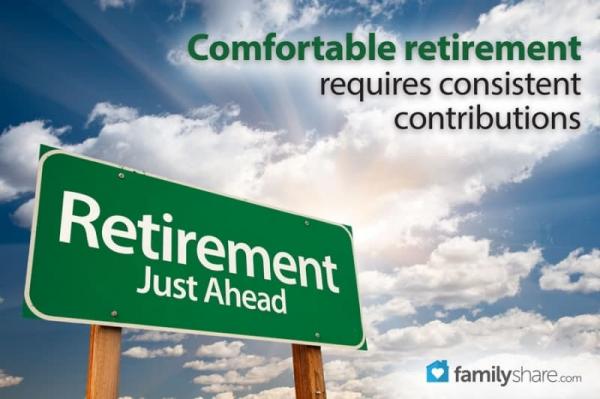
I have some good news and some bad news. First the good news: if you are young and committed to saving for retirement, chances are good that you will retire with $1 million or more in retirement savings. Now the bad news: that won't make you rich.
This matters. If you are saving enough to accumulate $1 million in your retirement expecting that it will make you rich, you will be sorely disappointed to learn in 30 years that it may only be enough for you to survive.
Inflation
Much of the returns, the nominal returns you see on your financial statements, will be eroded by inflation. Your real returns - returns adjusted for inflation - will be much smaller. Assuming just 3 percent inflation, the $1 million you have in your account in 30 years will likely spend much more like having $411,000 today. Not bad, right? But it isn't enough to make you rich by American standards.
Social Security
In the U.S., this government-guaranteed retirement program provides a safety net that is a false sense of security for many people. Complex formulas used to measure and adjust social security for inflation are likely to change, resulting in smaller benefits. You will likely have to wait until you are seventy to get the benefits as well. Thirty years from now if social security has been lagging real inflation, it could easily be providing only 75 percent of the economic value to retiring seniors then as now. That means, you'll need to get more of your income from your savings and investments than current retirees to enjoy the same retirement.
Save
As you can see, if you want to have a comfortable - or better - retirement, you need to be contributing consistently to your retirement savings. In the U.S., you can do this through your employer through a 401k or by opening an IRA. The advantage of a 401k is that the contribution to your savings happens before you see the cash and are tempted to spend it. Both IRAs and 401ks offer tax benefits that make them much better vehicles for retirement savings than regular accounts.
Invest
Once you have money in your savings account, you need to invest wisely, taking neither too much nor too little risk. Some are tempted to protect their savings by keeping it in the bank where it is FDIC insured and can never go down in value. That also guarantees that your investments won't grow as fast as inflation. Every dollar invested that way will be worth less-even with interest-than it was when you put it in the bank. Investing wildly in stocks, options and other exotic instruments can be just as destructive. Individual investors often fail to match market returns when managing their own investments. You can hire professionals to manage your money affordably by using mutual funds and ETFs (exchange traded funds).
If you start your retirement savings with the right understanding of the impacts of the decades that will pass between now and your retirement, you are more likely to invest well for the future and have a safe and comfortable retirement.

